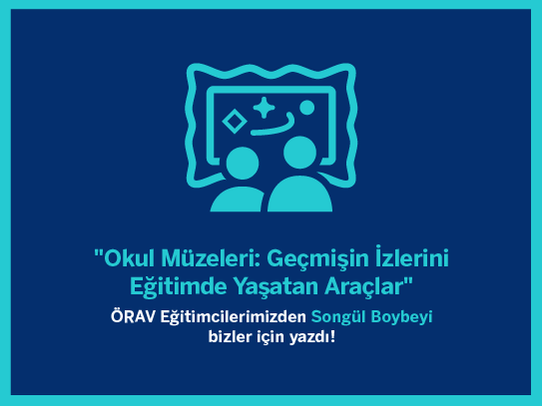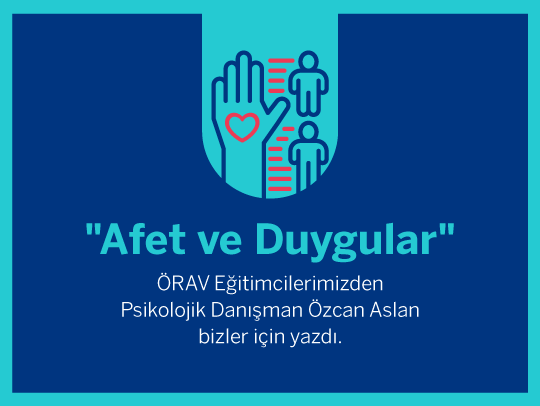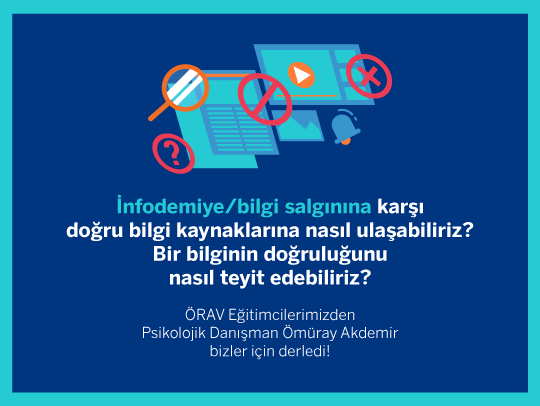What Can You Do to Feel Safe as a Teacher?
Try to go about your daily life
You should make an effort to return to your daily routine as much as possible. Routines such as eating or sleeping at the same time as before contribute to the normalisation process. Give us a sense of confidence.
Do not neglect your health
Do not neglect to take care of yourself. Try to eat a regular and healthy diet and get enough rest. Taking care of your physical health also protects your mental health.
Spend time with your family and friends
It is important to communicate with your near and dear ones. Talk to them about what you are going through, this will give you confidence. Sometimes it is quite normal to want to be alone, but do not isolate yourself from your loved ones.
Share your feelings and thoughts verbally / in writing
Tell your experiences to other people who you think can understand you. While sharing the events, also talk about your thoughts and feelings. Talking to someone, or writing if you prefer not to talk, will help you to recover and understand what has happened better.
Don't Make Sudden Decisions
Your feelings and thoughts about the world, life, the future and our goals may be shaken. Instead of making sudden and big decisions with this feeling, it is safer to be patient and try to re-evaluate what you have experienced by talking to your trusted relatives beforehand.
Use the Media in a Healthy Way
It is natural to want to find out what is happening after an earthquake through the media. However, avoid excessive following of related news, watching repetitive compelling images, etc. Over-focusing on earthquake-related images, news and discussions may cause your traumatic reactions to increase.
However, if there is no decrease in the symptoms of extreme anxiety, panic and hopelessness that seriously negatively affect your daily life after about a month, or if the frequency and severity of these behaviours are increasing, you should definitely consult a mental health specialist without wasting time.
What can you do as a parent to make your children feel safe?
Listen
Listen to your child, let them ask questions and respect their views. Chatting with children, drawing pictures together or playing games is the healthiest and most natural way for them to overcome this challenging process.
They may have many questions about why the earthquake happened, why it happened to them, whether the earthquake will happen again. You need to answer their questions by giving accurate and clear information in accordance with your child's age and development.
Comfort them
You can make a great contribution to children recovering faster by showing interest, closeness and affection. Tell your child sincerely that you love him/her. Children are happier and more hopeful when they feel loved and valued.
Give Confidence
Realistically reassure your children that they are now safe. Allay the children's worries about this. Remind them that both you and other adults have taken the necessary precautions to protect them from any danger that may occur.
Appreciate
In challenging situations, children reveal their strengths, such as caution, courage and hope. Praise your children, especially when you see their positive behaviour. Appreciation encourages them to repeat good and positive behaviour and builds self-confidence.
Play Games
Doing something fun and playing games with children is very important for their recovery. Art-based games (music, drawing pictures, sculpting, etc.) can also help children cope with the traumas they have experienced.
Share Your Feelings and Thoughts
Not expressing your feelings after the earthquake to your child does not give the message that you are strong, but that feelings should be hidden. You can talk to your children about your feelings to normalise them.
It will be effective for adults to talk to adolescents about healthy ways of coping with problems.
Try to Protect Daily Routines as Much as Possible
Maintaining daily routines is very important for children. For this reason, make sure that your children's meal, play, lesson or sleep times do not change as much as possible and maintain your routines to be a model.
Allow them to Take Responsibility
Allow children to voluntarily help and take responsibility for you and the people around you, respecting the measures taken.
Review and update future goals together
Children may lose the goals they had before the earthquake or find them meaningless. You can set short-term goals together rather than long-term goals and support your child to realise them.
Encourage Sociality
Your child may not want to meet his/her peers after the earthquake.
It is important to create opportunities for your child who is withdrawn and socially isolated to meet with his/her peers.
Observe Media Use
After the earthquake, continuous earthquake news, images, and broadcasts mentioning the earthquake in the media may prolong children's traumas and may be a triggering factor. It is also important to check that the content that children are exposed to on social media is age appropriate.
Inform About Changes
Especially if the earthquake caused physical and material damages, children want to know what will happen next.
The child should be informed about issues such as moving home, staying in another place for a while or changing schools and should be explained in an age-appropriate way.
For children in adolescence, involving them in decision-making processes can help them regain their sense of control.
Consult a Specialist
If your child shows reactions such as excessive panic, crying spells, constant sleep problems or intense behavioural problems, it would be good to seek support from a mental health professional.
What can we do as teachers to make our children feel safe?
Informing with Scientific Information
It is important to provide scientific information about the earthquake, individual and social precautions that can be taken to reduce the destructive effects of the earthquake, and a summary of normal psychological and behavioural reactions to traumatic events and what may happen afterwards. We should do this in a scientific and age-appropriate way so that we can help them make sense of the process. Because children are more afraid of things they do not understand and uncertainty.
Considering the Developmental Characteristics of Students
Children and adolescents may be more intensely affected by what they hear, see or experience than adults, and may reflect traumatic stress reactions in different ways. You should continue to observe your students regularly and pay attention to possible changes.
Providing Students with a Safe and Understanding Environment
Open and safe communication and interaction with students, equal and fair behaviour help them develop a sense of physical security and control.
The presence of teachers who show close interest and understanding, accept them under all circumstances, use positive discipline methods, motivate them and provide social support increases students' sense of trust.
Supportive Attitude, Effective Communication and Observation
Each child's level of being affected by the disaster will be different depending on various factors. For this reason, it is important to observe the students well and to be in contact with the parents about the feelings and behaviours of the children.
The most effective approach will be to listen to your student effectively, try to understand his/her experiences, focus on his/her feelings and observe his/her emotional reactions and behaviours. In this process, when you observe a situation that exceeds the roles and responsibilities of the teaching profession, it will be the healthiest solution to refer to the school psychological counsellor or the guidance and research centre in your location. In addition, it is important that you act in accordance with the principles of student privacy in this whole sharing process.
Psychosocial Support and Activities Application
The "Psychosocial Support Earthquake Psychoeducation Programme" and storybooks published on the website of the General Directorate of Special Education and Guidance of the Ministry of Education for students at all levels can be used. The activities will help strengthen students' psychological resilience.
Organise classroom activities, artistic activities and school-wide projects that can help children share their traumatic experiences, express and cope with their fears or anxieties.
Incorporate fun activities into your lessons
Students may have trouble focusing in lessons. During this process
you need to re-plan. You can support your students to maintain their engagement with in-class interactive activities or games structured in a way that you can include at the beginning/middle/end of your lessons.
Ensuring Family Participation
With the cooperation of school psychological counsellors and school administrators, it will be very useful to organise psycho-educational activities for the parents of the classes you are responsible for at certain intervals.
In order to contribute to the healing process of students, you can have regular meetings with the parents of students in need.
Contribution to Creating a School Climate Sensitive to Traumatic Experiences
Protecting the privacy of students affected by traumatic situations from the media and other people is a very important issue.
It is important for all school staff to work in cooperation to prevent traumatised students from being labelled in school, to prevent them from re-traumatising in the face of some reminders, and to ensure that they are physically-social-emotionally safe.
Strengthening Friendships and Peer Support
You can organise activities and group work to develop students' friendships in the classroom.
Supporting students to create meaning and purpose in life
You can contribute by giving students a variety of responsibilities that they can carry out successfully in school, by providing them with options to support them in making decisions on their own, setting life goals, enabling them to cooperate, and creating meaning from various success stories.
Source: M.E.B General Directorate of Special Education and Guidance Services
Psychosocial Support Programmes Publications




